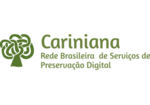Science Education: contributions to change
DOI:
https://doi.org/10.4025/rvc.v3i2.65705Keywords:
Science education, Issues, Critical reflection, ChangeAbstract
A critical reflection is presented on three relevant science education issues - teaching orientation, curricular reconceptualization and research/innovation - in order to stimulate their debate and suggest possible ways for their improvement in the framework of a science education for citizenship. The study is anchored in epistemic principles of Morin's Complexity, in particular the multidimensionality, multireferentiality and incompleteness of knowledge. It is mainly aimed at science teachers (non-higher education) and trainers of science teachers with a view to their professional development. A qualitative research approach of an interpretative nature of data from different sources is followed. The discussion on strategies for change focuses on the ongoing debate on STEM/CTS issues (teaching orientation), alternatives to curriculum architecture (curriculum) and the reorientation of the role of research as innovation, strategies to be carried out in a articulated way.
Downloads
References
BERA. The role of research in teacher education: reviewing the evidence. London: BERA, 2014.
BROWN, S. How can research inform ideas of good practices in teaching? Cambridge Journal of Education, Cambridge, v. 35, n. 3, p. 383-405, 2005.
CACHAPUZ, A. Educação em Ciências e o Arquipélago dos saberes: uma abordagem. In: TAUCHEN, G.; SILVA, J. (Orgs). Educação em Ciências: epistemologias, princípios e ações educativas. Curitiba: Editora CRV, p. 117-134, 2012.
CACHAPUZ, A. Arte e Ciências no ensino interdisciplinar das ciências. Revista Internacional de Pesquisa em Didática das Ciências e Matemática, v. 1, p.1-19, e020009, 2020.
CEREZO, L.; CÍMARA, M. Scientific culture and the social appropriation of science. Social Epistemology, Londres, v. 21, n. 1, p. 69-81, 2007.
CHEVALLARD, Y. La transposition didactique. Grenoble: La Pensée Sauvage, 1985.
FAZENDA, I. (Org.). O que é a interdisciplinaridade. São Paulo: Cortez, 2008.
FISCHER, D.; KINGHTTPS, J.; RIECKMANN, M.; BARTH, M.; BUSSING, A.; HEMMER, I.; LINDAU-BANK, D. Teacher Education for Sustainable Development: A Review of an Emerging Research Field. Journal of Teacher Education, Thousand Oaks, v. 73, n. 5, p. 509-524, 2022. Disponível em: https//doi.org/10.1177/00224871221105784. Acesso em: 12 jun. 2022.
FLICK, U. Introdução í pesquisa qualitativa. Porto Alegre: Artmed, 2009.
GARCIA-CARMONA, A. STEAM: una nueva distracción para la enseí±anza de la ciência? Ípic. Revista de Educación Científica, La Coruí±a, v. 4, n.1, p. 35-50, 2020. Disponível em: https://doi.org/10.17979. Acesso em: 15 jun. 2022.
HARKAVAY, I. University-assisted community school program of West Philadelphia: Democratic partnerships that make a difference. New Directions for Youth Development, San Francisco, n. 107, p. 35-43, 2005. Disponível em: https://doi.10.10027yd.127. Acesso em: 28 out. 2022.
LUDKE, H.; MARLI, A. Pesquisa em educação: abordagens qualitativas. São Paulo: EPU, 1986.
MATILLA P.; SILANDER, P. (Orgs.). How to create the school of future. Oulo/Finland: University of Oulo, 2015.
MAYOR, F.; FORTI, A. (Orgs.). Ciência e Poder. São Paulo: Papirus, 1999.
MORA, M. S. La comunicación pública de la ciencia y la educación informal: una relación complementaria. Journal of Science Communication - America Latina, Trieste, v. 5, n. 1, p. 1-13, 2022. Disponível em: https//doi.org/10.22323/3.05010401. Acesso em: 12 out. 2022.
OCDE. OECD Economic Surveys: Portugal 2018. Paris: OECD Publishing, 2018. Disponível em: http://www.dge.me.pt/sites/files/Projetoscurriculares/Aprendizagens_Essenciais/oecd_preliminaryfindings_thepilot_review_for_portugal_feb2018_sumario.pdf. Acesso em: 15 set. 2022.
OZDEN, M. Science Education for Citizenship: A Case Study. Anadolu Journal Of Educational Sciences International, Eskisehir, v. 10, n. 1, p. 150-188, 2020. Disponível em: https://doi:10.18039/ajesi.682020. Acesso em: 16 set. 2022.
PERALES, J.; AGUILERA, D. Ciencia-Tecnologia-Sociedad vs STEM: evolución, revolución ou disyunción? Ípic. Revista de Educación Científica, La Coruí±a, v. 4, n. 1, p. 1-15. 2020. Disponível em: https:doi.ORG/10.17979/arec.2020.4.1.5826. Acesso em: 1 set. 2022.
POMBO, O. Interdisciplinaridade: ambições e limites. Lisboa: Alêtheia, 2021.
PORTUGAL, Despacho n.º 5908/2017, de 5 de julho. Lisboa: Ministério da Educação, 2017.
QURESHI, A.; DEMIR, K. A Comparative Review of the Literature on Pakistani Science Teachers´ Professional Development. Science Education International, Dunedin, v. 30, n. 3, p. 223-235, 2019.
SMITH, K.; LINDSAY, S. Building future directions for teacher learning in science education. Research in Science Education, Roskilde, v. 46, p. 243-361, 2016.
STEINER, G. A ideia de Europa. Lisboa: Gradiva, 2007.
TAKEUCHI, M. A.; SENGUPTA, P.; SHANAHAN, M.; ADAMS, J. D.; HACHEM, M. Transdisciplinarity in STEM education: a critical review. Studies in Science Education, Exeter, v. 56, n. 2, p. 213-253, 2020. Disponível em: https://doi.org/10.1080/03057267.2020.1755802arec.2020.4.2.6533. Acesso em 12 mar 2022.
TOMA, R; GARCIA-CARMONA, A. De STEM nos gusta todo menos STEM. Análisis crítico de una tendencia educativa de moda. Enseí±anza de las Ciencias, Vigo, v. 39, n. 1, p. 65-80, 2021. Disponível em: https//doi.org/10.5565/ver/ensciencias.3093. Acesso em: 27 set. 2022.
UNESCO. Ciência para o século XXI: um novo compromisso. Lisboa: Comissão Nacional da UNESCO, 1999.
UNESCO. Fórum Mundial da Ciência. Lisboa: Comissão Nacional da UNESCO, 2017.













